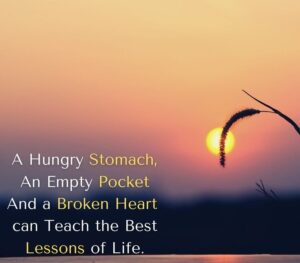《自律養生實踐家之旅389》 飢餓是一種動力

熟練斷食之後,我的創作靈感逐漸強烈,思考層次也提升了。我一度不明白其中的原因,只知道自己變得不一樣。
早年的幾本書,都是伴隨三週斷食同步展開的。我無法解釋為何選擇如此方式,只知道一旦進入那種狀態,書的前幾個章節就能順利落地。
身體的平靜,是我進入創作世界的入口。
不熟悉斷食的人難以理解那種「平靜的敏銳」,明明沒吃,卻不是餓,而是感官被推往更高的靈敏度。
在日常生活裡,若好多天沒吃,我們一定會用「餓昏了」來描述。但斷食時,那並不是餓,而是覺醒。
當我們毫無食慾、卻吃下第一口美食,下一秒食慾便如浪潮湧起。前一刻不餓,下一刻已經狼吞虎嚥。
飢餓來自誘惑,也來自入口的那一刻;它是吃與滿足之間的橋樑。適度叫滿足,超量叫飽足。
然而,還有另一種飢餓:被情緒激起的飢餓,緊張、急躁、壓力,都可能引發那種想用食物快速平息身體訊號的衝動。
把同樣的邏輯放在人生裡,譬如因匱乏而對成功極度渴求,譬如因內在空洞而對進步無比飢渴。
那種需要食物快速擺平血糖低迷的飢餓不是正常的飢餓,那種需要金錢快速擺平財務缺口的飢餓也不是正常的飢餓。
斷食讓我重新定義飢餓:飢餓應該是平靜的、安定的;是從容補給,而非急躁填補;是合理的動機,有清晰的目標。
被誘惑召喚出的飢餓,往往是假需求,虛榮、炫耀、被廣告製造的欲望、面子與排場催生的衝動。
真正的飢餓,反而清明:思緒銳利、感官精準、情緒穩定,踏實推動進步。
賈伯斯說「保持飢餓」,並非倡導渴求成功,而是持續追求成長、保持前進的動能。
斷食讓我體會這句話背後的深意:對健康保持飢餓,才能真正活著。
斷食重新解釋了飢餓,也超越了飢餓,讓身、心、靈都在飢餓中找到秩序與共鳴。
「保持飢餓」後面還有一句:「保持愚昧」。這裡所謂愚昧在形容一種傻勁,是那種能忍耐誤解、默默耕耘、最終以成果回應世界的智慧。
當外界看好你,你反而容易鬆懈;當外界看輕你,你才能安靜累積力量,把「傻」演得比聰明更聰明。
有人因對醫療失望而走進斷食;有人因斷食才看清醫療的局限。多數人以為斷食是饑餓,而且很愚蠢,事實卻恰恰相反。
斷食讓我理解飢餓的境界,也理解「愚昧」的深度。人人都需要斷食,人人都必須走這段通往清明的路。
斷食表面上照顧身體,真相卻遠不止於此,它帶我們走進身心靈共同覺醒的飢餓世界。
因為斷食,我看到兩個世界:不只是健康與生病,而是真實的飢餓與虛幻的飢餓。
吃藥的人,往往需要更多藥來解決副作用;吃三餐的人,常需要更多食物修補過度飲食所製造的失衡。
因此,飢餓有狹義與廣義之分。正面解讀飢餓,才能觸及生命真正的意義。
身體對食物飢餓而不躁動;人生對使命飢餓而不慌亂;靈性對回家飢餓而日夜等待。
真正的飢餓,是動力,是秩序,是清醒的渴望。
(當肚子飢餓、口袋空空、心也破碎時,人生最深刻的功課便在其中。)
Hunger Is a Form of Power
After becoming skilled in fasting, my creative impulses grew stronger, and my thinking rose to a higher plane. For a time, I couldn’t explain why — I only knew I was no longer the same person.
My early books were all written while I practiced three-week fasts. I could never justify why I chose to write this way; I only knew that once I entered that state, the opening chapters would naturally take shape.
The stillness of the body became the gateway to my creative world.
For those unfamiliar with fasting, it’s hard to comprehend that calm sharpness — clearly not eating, yet not truly hungry, as the senses elevate to a higher sensitivity.
In daily life, if we haven’t eaten for days, we’d say we are “starving to death.”
But during fasting, that sensation is not hunger — it is awakening.
When we have no appetite yet take the first bite of delicious food, within seconds, appetite surges like a wave — one moment not hungry, the next devouring everything in sight.
Hunger arises from temptation and from that first taste; it is the bridge between eating and satisfaction. Moderate is fulfillment, excess is indulgence.
Yet, there is another kind of hunger — emotional hunger. Tension, impatience, stress — all can trigger the impulse to use food to silence the body’s alarms instantly.
Apply the same logic to life:
Hunger born from insecurity leads to obsession with success.
Hunger from inner emptiness becomes desperation for progress.
The hunger that demands food to quickly correct low blood sugar is not true hunger;
the hunger that demands money to quickly fill a financial void isn’t true hunger either.
Fasting taught me to redefine hunger:
True hunger is calm and steady — replenishing with composure, not filling with urgency; driven by sound motives, guided by clarity of purpose.
Hunger stirred by temptation is often false need — vanity, comparison, desires planted by advertising, impulses born from pride and performance.
True hunger is pure: sharp thought, accurate senses, stable emotions, and a grounded force that drives growth.
When Steve Jobs said “Stay hungry,” he wasn’t encouraging desperate ambition, but continuous growth — the energy to keep moving forward.
Fasting allowed me to truly understand these words:
To stay hungry for health is to truly be alive.
Fasting reinterprets hunger — and transcends it — allowing body, mind, and spirit to find order and resonance through emptiness.
And right after “Stay hungry,” there is also: “Stay foolish.”
This “foolishness” means the stubborn courage to be misunderstood, to work quietly, and let results speak in the end.
When the world praises you, complacency creeps in.
When the world doubts you, silence becomes strength, and “foolishness” becomes wiser than cleverness.
Some came to fasting because they lost faith in medicine; others only recognized the limits of medicine after fasting. Many believe fasting equals starvation — and foolishness — yet reality is the opposite.
Fasting taught me the realm of hunger and the depth of “foolishness.” Everyone needs fasting; everyone must walk this path toward clarity.
Fasting appears to nourish the body — but its truth extends far deeper.
It leads us into a world where body, mind, and spirit awaken through hunger.
Through fasting, I saw two worlds — not merely health vs illness, but true hunger vs illusory hunger.
People who rely on medicine often need more medicine to fight side effects;
people who insist on three meals often need more food to repair the imbalance caused by overeating.
So hunger has a narrow and broad meaning. Only by interpreting hunger positively can we touch the true meaning of life.
A body hungry for food yet tranquil;
a life hungry for purpose yet unhurried;
a spirit hungry to return home yet patiently waiting.
True hunger is power.
It is order.
It is the sober yearning that carries us forward.


